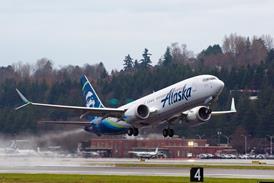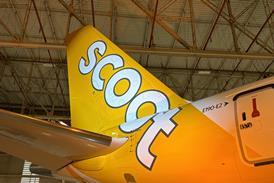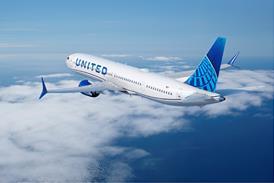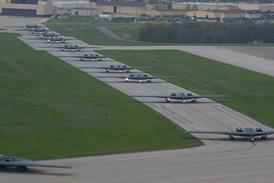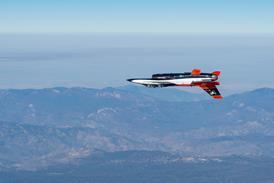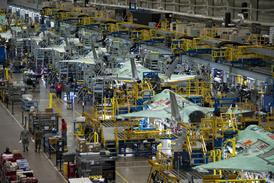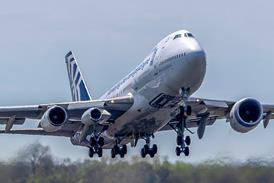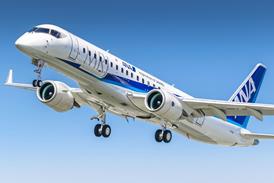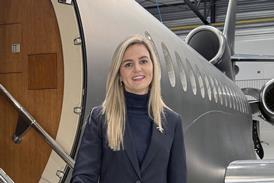In a world where inward-looking political sensibilities are zeitgeist, the appointment of Canadian national Ben Smith as the new chief executive of Air France-KLM was a welcome surprise.
It served as a small but timely reminder that commercial aviation need not yield to the regressive political forces that have re-emerged in recent years.
Air France-KLM's appointment of Smith was based on merit rather than a misguided preference for nativism over talent. Smith has built a strong reputation while number two at Air Canada, and his experience touches on many of the issues that weigh heavy on his new employer's fortunes.
His appointment came despite some French unions' insistence that the new group chief executive needed to be a French national. Their logic was that with Donald Trump and protectionism looming large, appointing a foreigner was too risky. The postholder needed to have French interests (and, though unsaid, presumably Dutch ones too) front and centre in their mind.
That argument was perverse and does nothing to dispel concerns that unions do not fully appreciate the seriousness of Air France's situation. There is an inherent absurdity in suggesting Smith would take such a high-profile role and then use it as a proxy to advance Canadian interests abroad.
Away from France, not all carriers have been able to resist self-defeating forces in recent months.
SANCTIONS SPAT
In mid-August, Turkish Airlines withdrew advertising in the USA as the government of Tayyip Erdogan engaged in a messy sanctions spat with the Trump administration.
"We as Turkish Airlines are taking our place alongside our state and people," the carrier’s vice-president for media relations Yahya Ustun posted on Twitter.
With the state holding a majority stake, Turkish Airlines' decision to join a wider US boycott was inevitable. Still, it looks incredibly counterproductive for an airline to trumpet efforts that reduce its appeal to paying customers – particularly in dollar-denominated markets. Protectionist agendas and outward-looking airlines are rarely comfortable bedfellows.
In another arena of counter-intuitive drama, the UK is currently negotiating – or at least attempting to negotiate – its exit from the European Union as an October deadline approaches. The political campaign that encouraged people to "vote leave" focused heavily on trashing the concept of easy movement between countries.
In leaving the EU, the UK is putting at risk its access to a relatively advanced aviation market that offers big benefits for airlines and passengers alike.
Indeed, for a country that is home to airline behemoths such as British Airways and the truly pan-European low-cost operator EasyJet – bringing connectivity benefits for its population – Brexit looks incredibly self-defeating.
The only "good" outcome that can be hoped for is maintenance of the status quo. Anything else is likely to complicate travel into and out of the UK, and to de-liberalise airline ownership requirements.
RUSHED DELIVERY
Meanwhile, the Trump administration's decision to withdraw from an Obama-era nuclear deal in early August meant that ATR was forced to rush five 72-600s into the country before sanctions were reintroduced.
In this case, political posturing means that Iran's airlines and its passengers continue to suffer ancient fleets, save a few new turboprops, while the big airframers lose potential business.
Iran Air's chief executive Farzaneh Sharafbafi described the last-minute August deliveries as a "defeat" for the "one-sided" decision by the US government. Whatever one's views on the wider geopolitical situation, her sentiment should be appreciated by people with an interest in nurturing a strong and safe global airline industry.
More broadly, as some world leaders prioritise petty squabbling and sanctions, last year's encouraging growth in air freight traffic is moderating. This may not be directly traceable to a rise in protectionism, but IATA recently described "deterioration of world trade" is a "serious concern".
Cargo carriers and airlines that fly freight in their bellies have much to lose if trade barriers further damage existing flows of goods between countries.
Amid all of this, the airline industry must practise what it preaches and resist counterproductive concessions to nativism and protectionism.
Kudos to Air France-KLM for realising this when appointing its next leader.
Source: Cirium Dashboard

